Chorkies live between 12 and 15 years, although individual longevity varies based on factors such as genetics, diet, exercise, and overall health. With proper care and regular veterinary check-ups, Chorkies can enjoy a relatively long and healthy life. A balanced diet, regular exercise, mental stimulation, and preventive healthcare measures (such as vaccinations and dental care) are essential to maximize the lifespan and well-being of a Chorkie.
Chorkie
Breed Type: Crossbreed
Coat: Silky
Hypoallergenic: No, they will likely trigger allergies.
Temperament: Friendly, affectionate, loyal, intelligent
Life expectancy: 12-15 years
Color & patterns:

Despite their tiny stature, Chorkies have larger-than-life personalities. They are loyal and devoted to their pet parents, forming strong bonds with their families. These mixed-breed dogs enjoy being the center of attention and love to be pampered with affection and cuddles. Chorkies are a popular choice for dog lovers seeking a compact pup with a big heart.
Chorkie characteristics
Learn about about Chorkie basics like their fur colors, shedding levels, how much grooming they need, and other Chorkie facts.
Average height
6-9 inches (15.2-22.9cm)
Average weight
4-10 pounds (1.8-4.5 kg)
Average lifespan
12-15 years
Exercise needs
Grooming needs
Full-grown size
Good with cats
Good with kids
Training aptitude
What is a Chorkie?
A Chorkie is a crossbreed between a Chihuahua and a Yorkshire Terrier. Small in size, they inherit traits from both parent breeds, often combining the feisty personality of the Chihuahua with the intelligence and loyalty of the Yorkshire Terrier. Chorkies are energetic, affectionate, social dogs known for their playful nature and strong bonds with their pet parents.
Are Chorkies hypoallergenic?
No, Chorkies are not hypoallergenic. However, they do shed less than some other breeds. While their minimal shedding often means they release fewer airborne allergens, they still produce dander and saliva proteins that can trigger allergic reactions in sensitive individuals. It’s essential for those with allergies to spend time with Chorkies to assess their reaction to them before bringing one into their home.
Do Chorkies shed?
Yes, Chorkies do shed, but very little. Their shedding tends to be minimal due to their short and often silky coats. While they may not shed as much as breeds with longer or denser coats, Chorkies still require regular grooming to remove loose hair and minimize shedding. Brushing their coat a few times a week can help keep shedding under control and maintain their coat's health and appearance.
What colors do Chorkies come in?
Chorkies come in black, tan, brown, and combinations of these colors. They often have markings or patterns similar to those found in their parent breeds.
How big do Chorkies get?
Chorkies weigh between four and 10 pounds and stand around six to nine inches tall at the shoulder when fully grown. However, their sizes can vary due to factors such as genetics, diet, and the size of their parent breeds. Chorkies tend to be compact, making them well-suited for apartment living and other small living spaces.
Do Chorkies need haircuts?
Yes, Chorkies need haircuts every month or two, but this can depend on the type of coat they inherit from their parent breeds. Those with longer, silkier coats resembling Yorkshire Terriers may require more frequent trims to maintain their length and prevent matting or tangling, especially around the ears, paws, and underside. Chorkies with shorter coats similar to Chihuahuas’ may still benefit from occasional grooming sessions, such as brushing to remove loose hair and periodic baths to keep their coats clean and healthy.
What does a Chorkie look like?
Chorkies look like a blend of the Yorkshire Terrier and Chihuahua. They are small with a compact build. Their coat can vary in texture and color, often resembling the silky, medium-length coat of a Yorkshire Terrier or the smooth, short coat of a Chihuahua. They have expressive eyes and ears, and their overall appearance is charming, lively, and distinctive.
When do Chorkies stop growing?
Chorkies stop growing around 12 months of age. However, their growth rate may vary, with some reaching their adult size earlier or later. Most Chorkies experience the most rapid growth during their first six months, which gradually slows down thereafter.
Chorkie history
Learn about where this Chorkie came from!
What were Chorkies bred for?
Chorkies were bred to be companion animals, combining the desirable traits of both parent breeds. With their small size, intelligence, and affectionate nature, Chorkies make excellent lap-dogs and family pets. They were not bred for specific working or hunting purposes but rather to provide companionship, love, and loyalty to their pet parents.
Where do Chorkies come from?
Chorkies originated in the United States. They are a hybrid breed resulting from the intentional crossbreeding of Chihuahuas and Yorkshire Terriers. While the exact origin of Chorkies is uncertain, the breed is believed to have emerged in recent decades as part of the trend towards designer dog breeds.
Chorkie temperament
Learn about about the Chorkie temperament and how well they fit into your lifestyle, home environment, and family.
Are Chorkies good with kids?
Yes, Chorkies are good with kids. While Chorkies are small dogs and may be more delicate than larger breeds, they can still enjoy playing and interacting with children who know how to treat them kindly.
Teaching children how to approach and interact with dogs appropriately, such as avoiding rough handling or pulling on ears and tails, is essential to prevent bites and ensure positive experiences for both the dog and the child. It’s also important for pet parents to teach their dogs how to gently interact with children and supervise all interactions with them to make sure everyone stays safe.
Are Chorkies good family dogs?
Yes, Chorkies are good family dogs. However, their suitability as family pets depends on various factors such as their individual temperament, socialization, and training. Chorkies are known for forming strong bonds with their human family members and can be affectionate and loyal companions. They often thrive in households where they receive attention, love, and consistent training.
Chorkies may do well in families with older children who understand how to interact gently with small dogs. Proper supervision and guidance are essential to ensure positive interactions between Chorkies and young children. Teaching children how to properly approach and handle dogs is crucial to ensure positive experiences for both the dog and the child, as is teaching dogs how to interact gently with children.
Are Chorkies aggressive?
No, Chorkies are not naturally aggressive. However, like all dogs, their behavior can be influenced by factors such as genetics, socialization, and past experiences. Proper socialization from a young age and positive interactions with people and other animals can prevent the development of aggressive tendencies. Additionally, Chorkies may exhibit protective behaviors toward their pet parents or territory, but these behaviors can be managed through training and consistent guidance.
If you are concerned by any signs of aggression or reactivity in your dog, be sure to address it promptly with the help of a professional trainer or behaviorist. Pain, discomfort, or underlying medical conditions can sometimes contribute to changes in a dog’s behavior, so it may also be worth visiting a vet to rule out their health as a cause for signs of aggressive behavior.
Are Chorkies easy to train?
No, Chorkies are not known to be easy to train. They can have a stubborn streak and may be easily distracted, making training sessions challenging at times.
However, training any dog takes substantial time and effort, regardless of breed, and when positive-reinforcement methods are used consistently — and training sessions are kept short and engaging — Chorkies can be responsive and eager to learn. Patience, consistency, and plenty of rewards are key to successfully training a Chorkie.
Do Chorkies bark a lot?
Yes, Chorkies are known to bark a lot. They inherit this trait from their parent breeds, Chihuahuas and Yorkshire Terriers, both of which are known for their vocal nature. Chorkies may bark to communicate, express excitement, alert their pet parents to perceived threats, or simply out of boredom.
Are Chorkies friendly?
Yes, Chorkies are friendly dogs. They inherit their social nature from their parent breeds, both known for their affectionate and loyal personalities. Chorkies enjoy spending time with their families and often greet visitors with enthusiasm. However, like all dogs, individual temperaments can vary, and early socialization and training are essential to ensure they develop into well-behaved and well-adjusted companions.
Are Chorkies good dogs?
Yes, Chorkies are good dogs. They are loyal, affectionate, and intelligent. However, their behaviors can depend on factors such as genetics, socialization, training, and individual personality traits. Providing mental stimulation and regular exercise is important to keep Chorkies physically and mentally healthy.
Are Chorkies good with cats?
Yes, Chorkies can be good with cats, but that largely depends on their individual personalities, socialization, and previous experiences. Early introductions and positive interactions between Chorkies and cats can help foster a harmonious relationship. However, some Chorkies may have a strong prey drive inherited from their terrier ancestry, which could lead to chasing behavior towards cats. Supervision and gradual introductions can ensure a peaceful coexistence between Chorkies and cats in the same household.
Are Chorkies good with other dogs?
Yes, Chorkies are good with other dogs. However, this can depend on individual temperament, socialization, and past experiences. Early socialization with other dogs is important to help Chorkies learn appropriate social behaviors and develop positive relationships with their canine counterparts. While some Chorkies may be outgoing and enjoy playing with dogs, others may be more reserved or selective in their interactions. Supervision and gradual introductions to new dogs can help ensure positive experiences and prevent conflicts.
Are Chorkies smart?
Yes, Chorkies are smart. They inherit intelligence from both their parent breeds, which are known for their cleverness and quick learning abilities. Chorkies are often alert and curious, with a keenness for picking up on cues from their environment. They may excel in activities that stimulate their minds, such as puzzle toys or interactive games.
Do Chorkies like to cuddle?
Yes, Chorkies like to cuddle. They often enjoy close physical contact with their human companions and are known for their affectionate nature. Chorkies are lap-dogs and may seek out opportunities to snuggle and be near their favorite humans. Their small size makes them well-suited for cuddling, and they often crave warmth and companionship.
Can Chorkies swim?
Yes, Chorkies can swim if they are introduced to water gradually and taught proper swimming techniques. While some Chorkies may naturally take to water and enjoy swimming, others may be hesitant or require more encouragement and support. It’s essential to supervise Chorkies closely around water, especially if they are inexperienced swimmers, to ensure their safety.
Do Chorkies have separation anxiety?
Yes, Chorkies can have separation anxiety, a trait that is common in both Yorkshire Terriers and Chihuahuas. The extent to which an individual Chorkie experiences separation anxiety can vary on factors such as their temperament, past experiences, and the level of socialization they have received. Some Chorkies may be more prone to developing separation anxiety than others, especially if they have a strong bond with their pet parents or have experienced significant changes or disruptions in their routines. Providing a structured environment, engaging in regular exercise and mental stimulation, and gradually acclimating Chorkies to periods of alone time can help prevent or alleviate separation anxiety in these sensitive dogs.
Chorkie health
Learn about about the Chorkie health outlook and what diseases they may be prone to at various stages of their life.
Do Chorkies have health issues?
Yes, Chorkies can have health issues like any other dog. The diseases that Chorkies are more prone to include:
Skin issues and allergies: Chorkies, like many small dog breeds, can be prone to skin problems such as allergic reactions, dermatitis, and dry skin. Allergies may be triggered by various factors, including food, environmental allergens like pollen or dust mites, or contact with certain materials. Symptoms may include itching, redness, hair loss, and skin infections.
Patellar luxation: Patellar luxation is a common orthopedic condition in Chorkies characterized by the displacement of the kneecap (patella) from its normal position. This condition can lead to lameness, pain, and difficulty walking. Severity can vary from occasional slipping of the patella to chronic dislocation, requiring surgical correction.
Hypothyroidism: Hypothyroidism is a condition caused by an underactive thyroid gland, leading to a deficiency in thyroid hormone production. Symptoms of hypothyroidism in Chorkies may include weight gain, lethargy, hair loss, skin problems, and behavioral changes.
Heart disease: Chorkies may be predisposed to various heart conditions such as mitral valve disease, dilated cardiomyopathy, or congenital heart defects. These conditions can lead to symptoms such as coughing, difficulty breathing, exercise intolerance, and fluid buildup in the abdomen or chest.
What do Chorkies eat?
Chorkies should eat a well-balanced and nutritious diet formulated for small-breed dogs. This typically includes high-quality commercial dog food that is specifically designed to meet their nutritional needs. Look for dog food brands that list meat as the primary ingredient and avoid those with fillers or artificial additives. Additionally, feeding Chorkies smaller, more frequent meals throughout the day can help prevent digestive issues and maintain stable energy levels. It's essential to provide fresh water at all times. Consult with a veterinarian to determine the appropriate feeding schedule and portion sizes based on your Chorkie’s age, weight, activity level, and overall health.
Find Chorkie puppies near you
Adopting a Chorkie
We don't see any Chorkies available for adoption in your exact location or cities near you, but here are some adorable similar breeds in Columbus, OH.
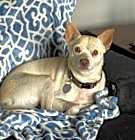
Little Andy
Chihuahua
Male, 5 yrs
Lewis Center, OH
Not good with dogs
Not good with cats
Spayed or Neutered

Nina from TEXAS
Chiweenie Pug
Female, young
Columbus, OH
Good with dogs
Not good with cats
Spayed or Neutered
Shots are up-to-date
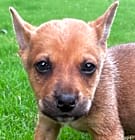
Kasey
Chihuahua Chihuahua
Male, < 1 month
Columbus, OH
Good with dogs
Good with cats
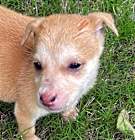
Karen
Chihuahua Chihuahua
Female, 1 mo
Columbus, OH
Good with dogs
Good with cats
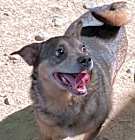
Sweetie
Chihuahua Pug
Female, senior
Columbus, OH
Good with dogs
Not good with cats
House-trained
Spayed or Neutered
Shots are up-to-date
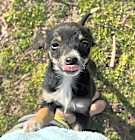
Rollo
Chihuahua Yorkie, Yorkshire Terrier
Male, puppy
Sunbury, OH
Good with dogs
Good with cats
House-trained
Spayed or Neutered
Shots are up-to-date
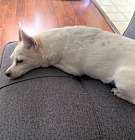
Rascal
Chihuahua
Male, senior
Columbus, OH
Good with dogs
Not good with cats
House-trained
Spayed or Neutered
Shots are up-to-date
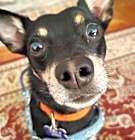
Dewie-OS
Chihuahua
Male, young
Pataskala, OH
Good with dogs
Good with cats
Spayed or Neutered
Shots are up-to-date

Little Andy
Chihuahua
Male, 5 yrs
Lewis Center, OH
Not good with dogs
Not good with cats
Spayed or Neutered

Nina from TEXAS
Chiweenie Pug
Female, young
Columbus, OH
Good with dogs
Not good with cats
Spayed or Neutered
Shots are up-to-date

Kasey
Chihuahua Chihuahua
Male, < 1 month
Columbus, OH
Good with dogs
Good with cats

Karen
Chihuahua Chihuahua
Female, 1 mo
Columbus, OH
Good with dogs
Good with cats

Sweetie
Chihuahua Pug
Female, senior
Columbus, OH
Good with dogs
Not good with cats
House-trained
Spayed or Neutered
Shots are up-to-date

Rollo
Chihuahua Yorkie, Yorkshire Terrier
Male, puppy
Sunbury, OH
Good with dogs
Good with cats
House-trained
Spayed or Neutered
Shots are up-to-date